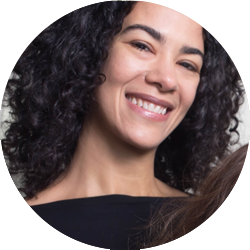I remember trying to get the real scoop on parenting, good and bad, before I had a baby. “It’s hard,” new parents would say, and then quickly paper over that tiny admission. “But of course I wouldn’t trade it for anything!”
It sounded suspicious to me. Even so, once I had a baby, I followed suit:
Pregnant friends came to visit our newborn. We were ragged with sleep deprivation, scared because our baby wasn’t gaining weight, and uncertain of our every move. Our friends smiled at our beautiful baby. “You must be so thrilled!” they said. Umm …
We smiled and nodded. Maybe we’re the only ones struggling like this, I thought. Better not to rain on their parade.
Another time, asked what my day as a stay-at-home mom is like, I just gave the good stuff. Like getting to see so many details about the world through my daughter’s eyes, at my daughter’s pace. “That sounds nice,” my friend said. “It is,” I said.
I did not say: “Seeing my baby smile, I feel these surges of joy. That’s pretty cool. Yesterday, though, my baby had this huge blowout poop just as we were heading out the door. I mean, all over her clothes, on my shirt. So gross. I’d felt trapped in the house all day and had just finally gotten up the energy to get both of us ready to go for a walk, and here I had to start all over? I just sat down and cried.”
When we open up first, the other person often feels permission to open up, too. I felt such a sense of relief when another mom told me, “I’m struggling with my toddler hitting other kids. I’m not sure I’m handling it well.” That started an honest conversation–and we feel closer to each other for it.
Creating your village, your support network, is perhaps the most important thing you can do as a parent. (If you need ideas for how, see my list on The Huffington Post.) And opening up is the first step.
Researcher Brené Brown can tell you what happens when we pretend everything’s fine when it’s not (often out of shame that we’re not handling everything perfectly or that we’re the only ones struggling). We deprive ourselves of true friendship. Friendship happens when we feel accepted for who we truly are. That requires us to be real.
Sounds simple, but for many of us it’s scary to be vulnerable. It takes resolve.
I decided to try it. At the grocery store, another new mom saw my baby and asked if I was getting any sleep. I could have downplayed it: “Not much, but I guess that’s how it goes.” Instead I said: “Yeah, right! This sleep deprivation is crazy. My brain isn’t functioning. My husband and I actually argued over whether ‘Don’t cry over spilled milk’ refers to the mother or the child.” She laughed. We commiserated. We felt less alone. That’s no small thing to a bewildered new parent.
The next time another new parent (someone you like; someone who’s interested) asks you how it’s going, try going beyond “Good, good.”
Say something honest.
Written by
Tracy Cutchlow
Tracy is the author of the international bestseller Zero to Five: 70 Essential Parenting Tips Based on Science, a public speaker, and a creator of places to speak and be heard. Sign up for her newsletter here.


One thought on “The first step to more connection with others”